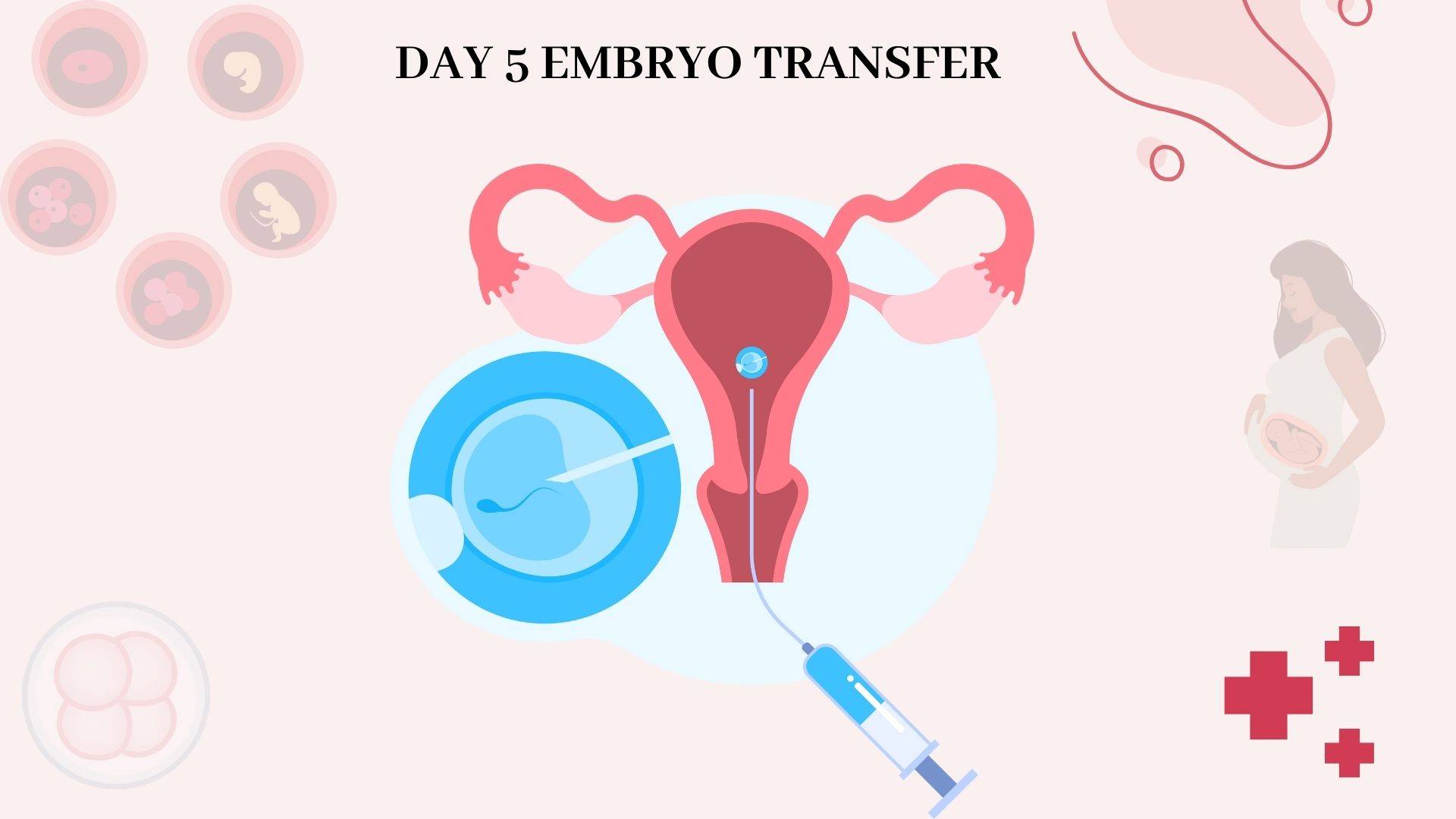
DAY 5 IVF EMBRYO TRANSFER
In IVF, embryo transfer is done after the fertilisation of eggs and sperm. When going for embryo transfer your doctor will always ask you what kind of embryo transfer you want. Embryo transfer or implantation and the quality of the embryo used for transfer are of utmost importance in the whole IVF process.
What happens during day 5 IVF embryo transfer, and how long is the process?
During embryo transfer, sedation is rarely required, and the process is not painful; you can only feel slight discomfort and cramping. Into the uterus, through the cervix, a long, thin needle containing embryos is inserted and the embryos are released. A bit of fluid is included in the needle for the easy transfer of embryos. After that ultrasound is performed to ensure proper implantation of the embryo. The procedure is very short and may take around 15 to 30 minutes. After that, you are advised to rest for 30 to 45 minutes and avoid doing vigorous exercises, and 10–12 days after embryo transfer, a blood test is done to detect pregnancy.
Different types of embryo transfer There are different types of embryo transfer you can choose from.
- Fresh Embryo Transfer (FST): It takes place after 2 to 5 days of fertilization of eggs and sperm.
- Frozen Embryo Transfer (FET): This type of transfer is performed in a woman who cannot undergo fresh embryo transfer due to the risk of ovarian hyperstimulation syndrome or when the uterine cavity is not suitable, then it makes the transfer of fresh embryos inconvenient. In some cases, embryos are already preserved from the previous cycle in frozen form and can be readily used for the transfer.
- Day 3 Embryo Transfer: This type of embryo is known as a cleavage embryo, and some doctors transfer the embryo on day 3 as not all embryos are capable of surviving until day 5.
- Day 5 Embryo Transfer: A day 5 embryo is known as a blastocyst. Blastocysts are considered to be the best fit for implantation because they have the chance of producing live births and are genetically normal.
How to prepare yourself for embryo transfer
- Get plenty of rest before and after embryo transfer
- Do not perform vigorous and exhausting physical exercises.
- Take all the fertility medications and hormones on time; you can take vitamin D supplements along with them.
- Eat high-fat and warm foods before the procedure. Food rich in minerals, magnesium, zinc, and omega-3 should be consumed.
- Light exercises like yoga and acupuncture can be done.
- Avoid using substances with chemicals and certain odors like perfumes on the day of embryo transfer, as embryos are super sensitive and can be disrupted.
- Drink plenty of water.
- Pregnancy Opportunities
- Reducing Genetic Disease Risks
- Control Over Pregnancy Timing
- Reducing Miscarriage Risk
- Cramping
- Bloating
- Sore Breasts
- Tiredness
- Changes in Discharge
- Frequent Urination




.png)
.png)
